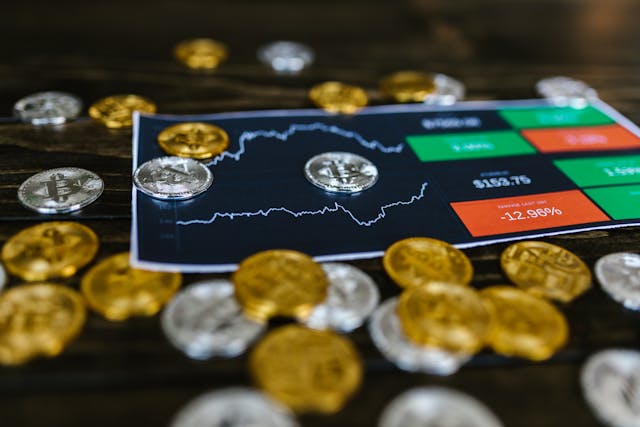
The Ultimate Guide to Forex Trading Hours
July 18, 2024
Navigating the World of Hammer Candlesticks
July 23, 2024Mastering the Art of Trading on Forex Capital Markets

forex capital markets image
INTRODUCTION
These are just a few ideas about what forex capital markets mean, and why they are important in global economy. However; we will start by defining Forex Capital Markets.
WHAT ARE FOREX CAPITAL MARKETS?
Forex capital markets, or currency trading platforms, enable the buying and selling of currencies. Unlike other types of financial markets, Forex does not have a central location where it is based. Instead, it is operated through a worldwide network of banks, companies as well as individual traders all round the clock.
IMPORTANCE OF FOREX MARKETS IN THE GLOBAL ECONOMY
In addition to this, forex markets are essential to the world economy due to their roles in supporting international investment and trade. Corporations use them to convert currencies, manage currency risks or speculate on movements in foreign exchange rates.
UNDERSTANDING FOREX TRADING MARKETS
BASICS OF FOREX TRADING
Forex trading consists of purchasing one currency while simultaneously selling another one. These transactions involve pairs such as EUR/USD or GBP/JPY. The main aim is earning from changes in exchange rate between these two nations’ currencies.
Forex Trading Hours
The most popular currencies traded in forex market include U.S dollar (USD), Euro (EUR), Japanese yen (JPY), British pound (GBP) and Australian dollars (AUD).
Forex Trading Sessions
Forex Capital markets are open 24 hours a day, five days a week. They start with the Sydney session, then Tokyo, London and New York sessions. Traders can therefore act on worldwide breaking news as they happen.
How Forex Markets Operate
The Role of Currency Pairs
In forex trading currencies are quoted in pairs. The base currency is in the first position while the quote currency is in the second one. The quote indicates how much of the quote currency is needed to buy one unit of base currency.
Bid and Ask Prices
A bid price and an ask price exist for each currency pair. On one hand, bid price is the highest cost at which a buyer will pay for that particular pair of currencies whilst on another hand ask price is the lowest amount whereby seller may sell it off (Kimberley 2012). The difference between these two prices called spread.
Spread in Forex Trading
In forex trading, knowing what spread implies is essential as it represents the cost of executing trades (Johnston 2003). For instance, when spreads are reduced, this signifies that there is sufficient liquidity market hence reducing transaction costs making it most favorable for traders (Goldman 2010).
Foreign Exchange (forex) Markets and Types
Spot Market
This is where currencies are bought and sold for immediate delivery. Transactions on this market settle promptly within two business days.
Forward Market
The forward market is a place where firms get into contracts to buy or sell currencies at some future time, with the exchange rate agreed upon when the agreement is made. This helps traders hedge against potential currency fluctuations.
Futures Market
The futures market is also similar to the forward market but involves contracts that trade on exchanges which are standardized. These contracts state how much currency, at what rate it will be exchanged for other currencies, and when it will be delivered in future.
Forex Trading Participants
Central Banks
The central banks are among significant players in forex trading. They control national reserves and enforce monetary policy to curb inflation, stabilize money and promote economic growth.
Commercial Banks
Most of forex transactions occur via commercial banks which provide such services as hedging clients’ exposures, speculation as well as foreign currency exchange.
Investment Funds
Investment funds of various types including mutual funds and hedge funds take part in forex markets in order to diversify investment portfolios; hence exploiting any opportunity for profitability.
Corporation
Trading in the Forex markets is one of the ways used by multinational corporations to mitigate international trade and investment currency risks.
Individual Traders
Online based platforms are used by individual traders, who are commonly referred to as retail traders, for their participation in the Forex markets. They usually engage in trade with an aim of making money, where they capitalize or depend on their knowledge about market tendencies and analytical skills.
Forex Trading Platforms
Overview of Popular Platforms
Among popular forex trading platforms, MetaTrader 4 (MT4), MetaTrader 5 (MT5) and cTrader stand out. These platforms provide tools for analyzing, charting as well as automated trading.
Features to Look for in a Trading Platform
Elements such as user friendliness of the platform, variety of tools available for use with it, security features and customer support should be taken into account when choosing a forex trading platform. Additionally, a good platform should also offer educational resources and access to market news.
Forex Market Analysis
Fundamental Analysis
One way that fundamental analysis does this is through consideration of economic indicators such as GDP figures, employment rates and interest rates so as to predict currency fluctuations. Such an approach usually looks at the bigger picture concerning state economies at large.
Technical Analysis
Fibonacci retracements, trend lines etc are some of the tools that traders make use of while making decisions during technical analysis. Technically analyzing history price data together with chart patterns assists in predicting future market movements.
SENTIMENT ANALYSIS
Sentiment analysis helps gauge the general mood of traders and investors. Traders can predict possible market movements by understanding market sentiment and adapt their strategies accordingly.
FOREX TRADING STRATEGIES
DAY TRADING
Day trading is a method of buying and selling securities on the same day. The aim of this strategy is to make use of short-term price movements, which requires continuous monitoring of the markets.
SWING TRADING
Swing trading concentrates on capturing gains over several days or weeks. For traders there are prospective price moves while checking graphs for entering and leaving points.
POSITION TRADING
Position trading involves holding positions for an extended period, often months or years. This strategy is grounded on long term trends as well as fundamental analysis.
RISKS IN FOREX TRADING
MARKET RISK
Market risk stands for the possibility of losing due to unfavorable price movements. Economic data, geopolitical events and even market sentiments are just some factors that could influence currency prices.
LEVERAGE RISK
One good thing with leverage is that it enables traders to control large positions with small amounts of capital. Although leverage may multiply profits, it also increases exposure to potential substantial losses.
Conclusion
Traders of any level can use the forex capital markets as a dynamic and accessible platform for currency trading. The forex market is highly liquid, open 24/7 with different active participants, which creates opportunities for making money. In addition to this, there are also some downsides associated with it, including fluctuating prices and other complexities related to using borrowed funds.
For any person who wants to engage in successful trading, they must have knowledge of the basics of forex trading such as understanding currency pairs, types of markets as well as players involved. This way they will be able to access the market through strong trading platforms, analyze markets effectively and implement appropriate trading strategies.



